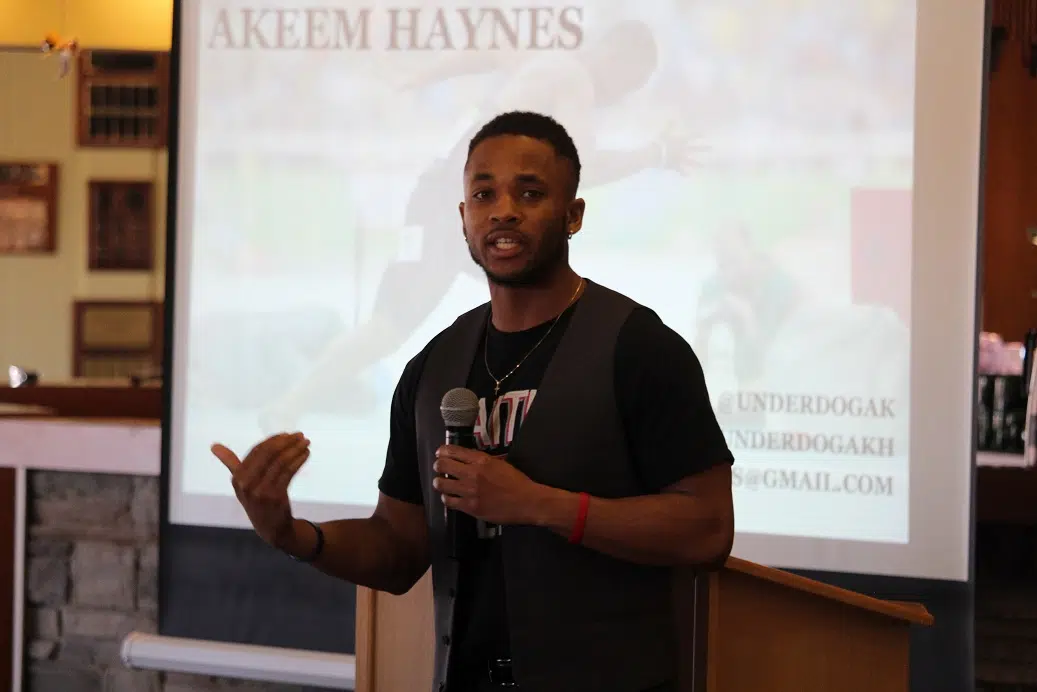
From homeless to Olympic medalist: Akeem Haynes details his journey in supporting KidSport
LETHBRIDGE, AB – Akeem Haynes is someone that’s achieved a lot in his life at just 27 years of age.
He won a bronze medal at the 2016 Olympics in Rio de Janeiro in the 4x100m relay as the lead-off runner for the Canadian team, helping Canada break a 20-year-old national record in the process.
But despite that success, Haynes did not have an easy path to the Canadian Olympic team.
Haynes spoke to the Lethbridge Taber KidSport Sponsor & Friends Luncheon on Wednesday, Mar. 20, and shared his experience and why it’s important for him to work with groups like KidSport that give young people a leg up when it comes to being able to play sports.


